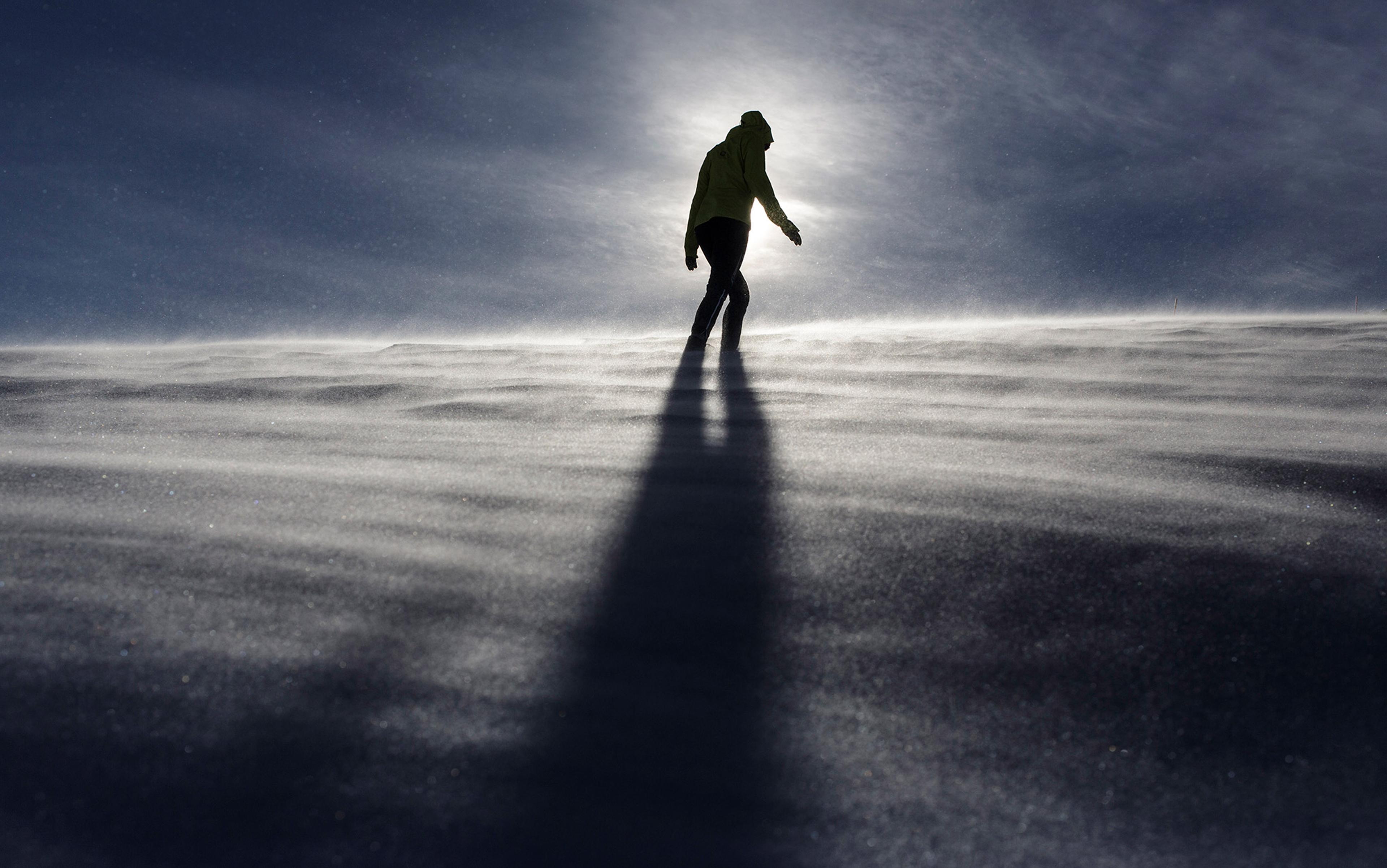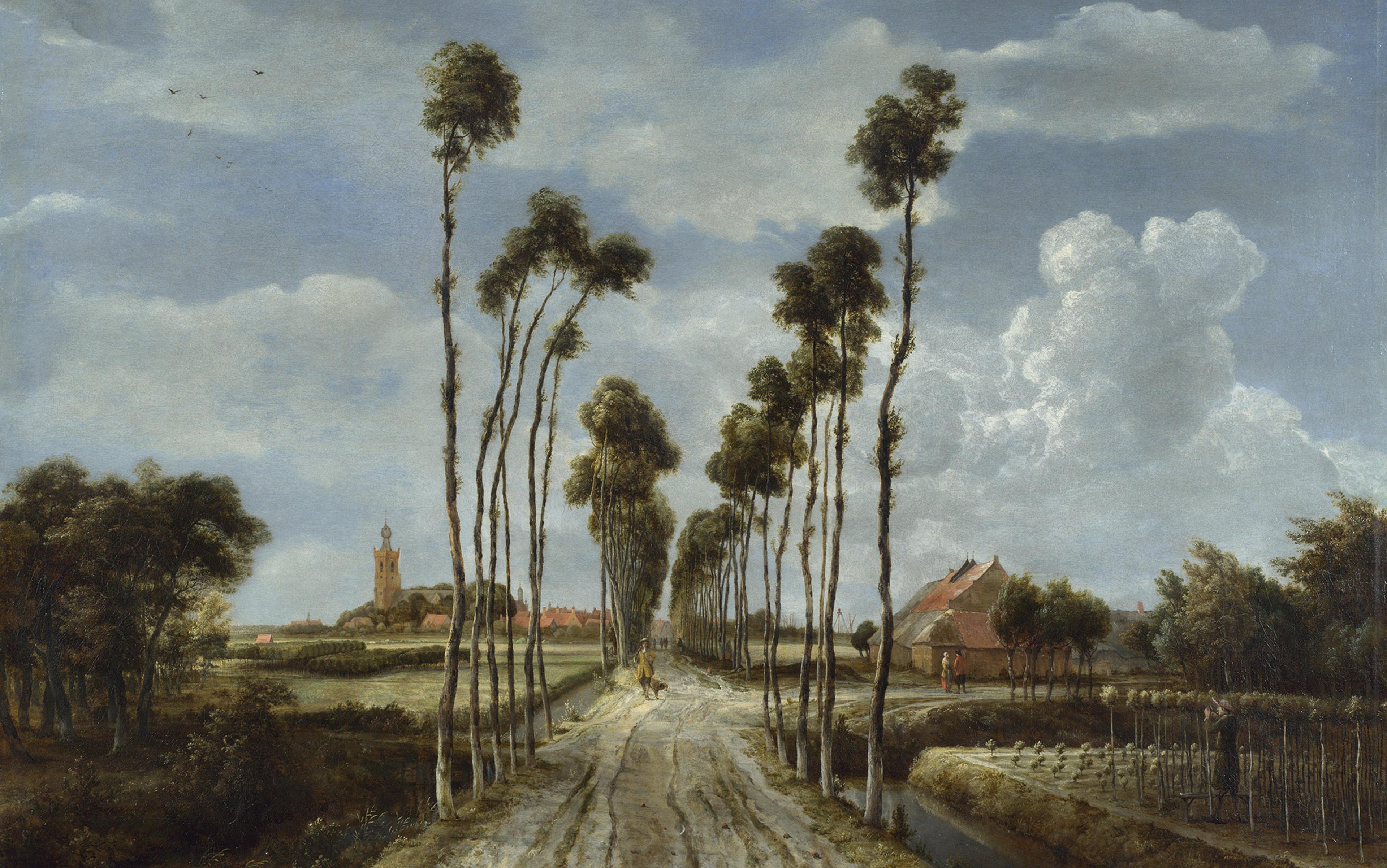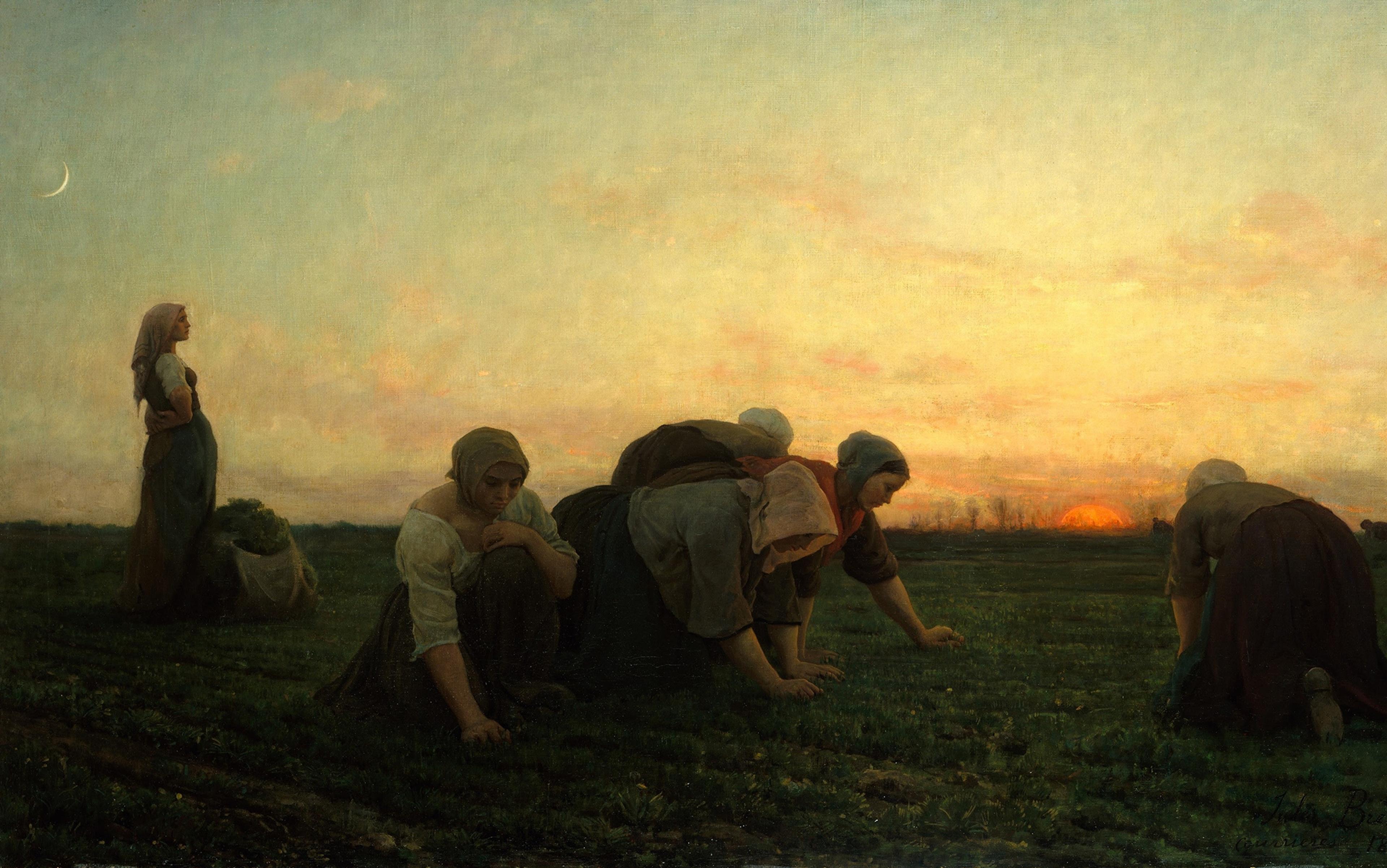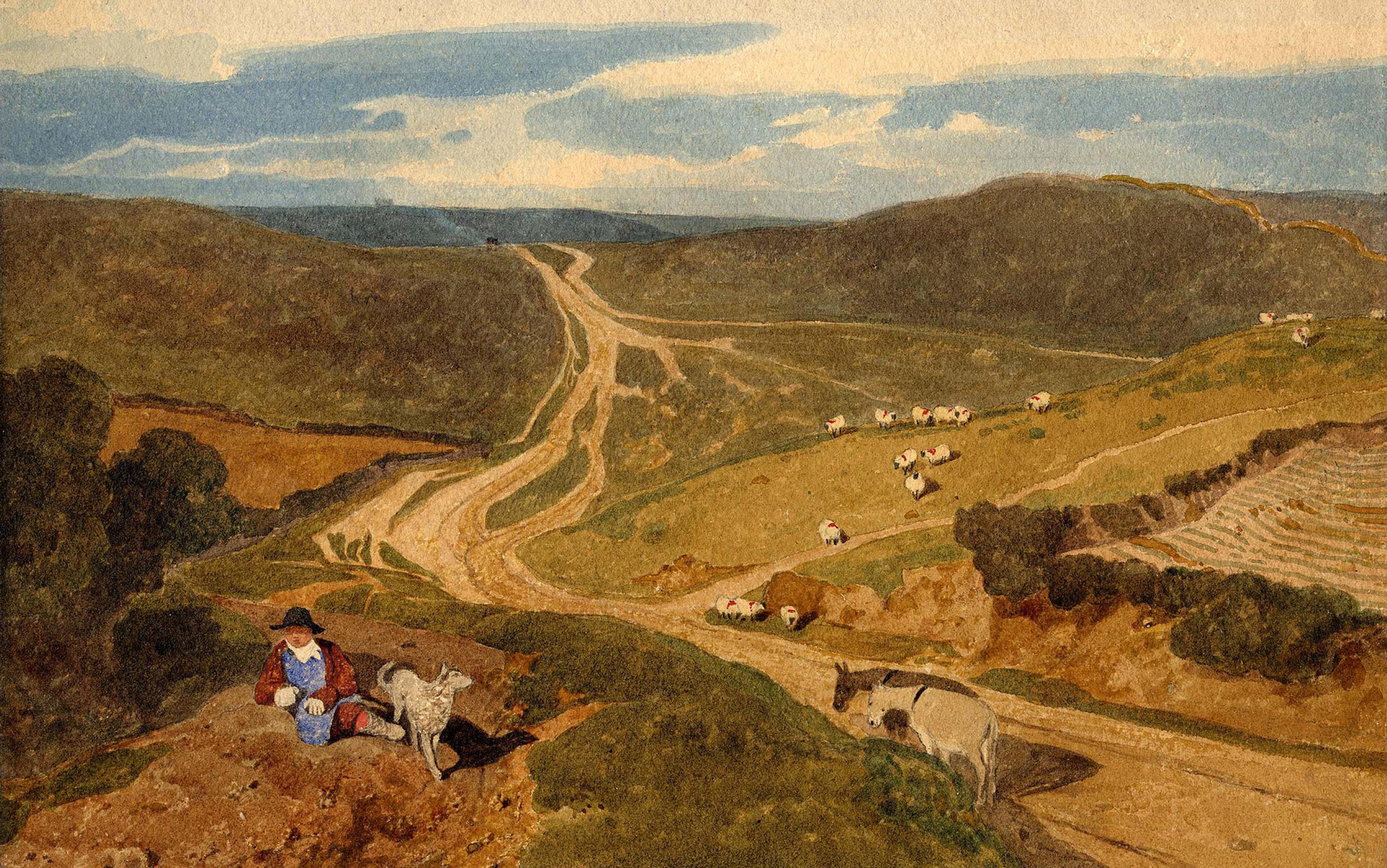Each of us experiences the climate crisis. We try to adapt to it: buying face masks to brave smoke-filled air outdoors or air purifiers to clean it indoors, turning up the air conditioning to insulate ourselves from excessive heat, preparing to evacuate our homes, if need be, when another hurricane hits the coast. We wonder where we can settle down that won’t go to hell in a handbasket during our lifetime. Some of us wonder whether we should bring children into this world.
The climate crisis prompts questions that challenge our very being. We ask ourselves: ‘Who am I in this increasingly unstable world? What is to become of me?’ Such questions can lead to despair, or lead us to look away, but, as we will see, they can also positively challenge the way we think about ourselves.
Our current political and economic circumstances lead us to think of ourselves as useful cogs in a machine, and of our identity in terms of certain hoops we need to jump through: go to college to get well-paying jobs, climb the property ladder, and make sure we have adequate savings for retirement. However, the climate crisis can prompt us to rethink these suppositions. What good are retirement savings if the world is burning? We need a much richer concept of self – a fully realised self that is worth preserving.
The concept of self-realisation acknowledges our strong drive to preserve ourselves and to persevere in the face of the climate crisis. This self-concept is much richer and more expansive than is commonly recognised. It’s not enough to preserve your narrow, personal self. You are part of a vast, interconnected Universe, where your wellbeing crucially depends on maintaining relationships and connections with others, including nonhuman others.
The Norwegian philosopher Arne Næss (1912-2009) coined the term deep ecology. The main idea of deep ecology is that we should address the ecological crisis through a paradigm shift. Rather than tinkering with concrete targets (such as CO2 emissions), we must radically re-envisage how we engage with the world. Næss was a wide-ranging philosopher with varied interests. Among many other things, he was a huge fan of the Sephardic Dutch philosopher Baruch de Spinoza (1632-77), particularly of his Ethics (1677), which Næss re-read frequently, and which plays a key role in his environmental philosophy.
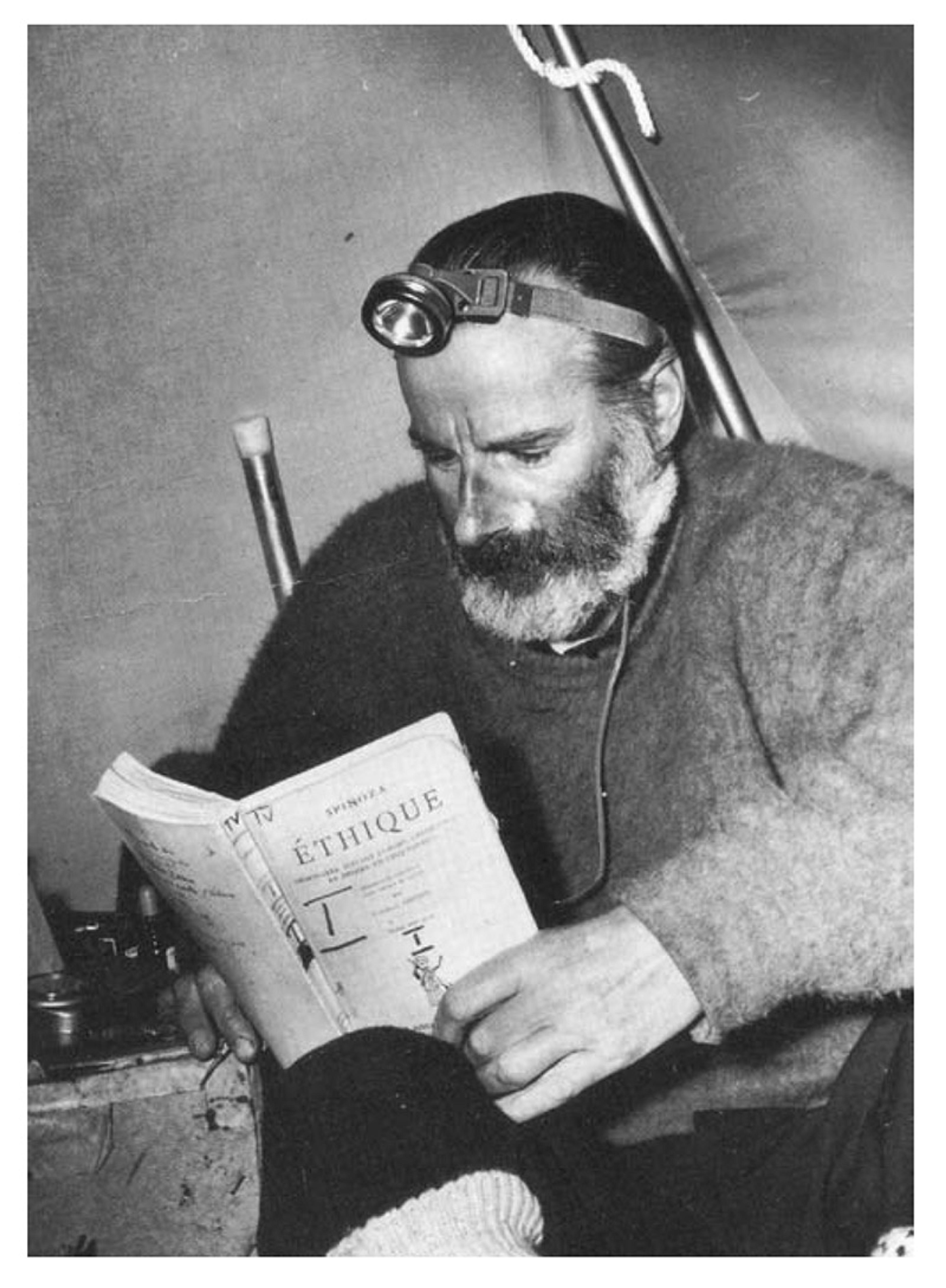
Arne Naess reading Spinoza’s Ethics. Courtesy Open Air Philosophy
Næss is famous in his home country. He is considered a national treasure, widely admired for his social activism, mountaineering, philosophy textbooks, and even his practical jokes and spectacular feats such as climbing the walls of the tallest building at the Blindern campus of the University of Oslo while being interviewed by the Norwegian Broadcasting Corporation. He was a man of polarities: on the one hand, a member of an eminent Norwegian family, appointed as a full philosophy professor at Oslo aged 27 – in fact, the only philosophy professor in Norway at the time. On the other hand, he published his extensive works with little regard for prestige or fame, including in obscure ecological magazines with small print-runs. This partly explains why Næss still remains relatively unknown in English-language academic philosophy. Especially in later life, he approximated what his friend and fellow environmental philosopher George Sessions called a ‘union of theory and practice’, practising his ecophilosophy by spending extensive time outdoors, hiking and mountaineering until well into his 80s. Næss had a spartan vegan diet consisting of unseasoned boiled vegetables. After retiring early, he gave much of his pension away to various projects such as the renovation of a Nepalese school.
Næss’s notion of self-realisation is inspired by many philosophical traditions, including Mahayana Buddhism and Gandhi’s philosophy of nonviolent resistance. Another important inspiration was from Spinoza. According to his Ethics, everything in nature has a conatus, a fundamental striving to continue to exist: ‘Each thing, as far as it can by its own power, strives to persevere in its being.’
We see this fundamental tendency not only in humans but also in trees, bees and geese, and even inanimate objects such as tables, mountains and rocks. Things don’t spontaneously disintegrate and they tend to keep their form over time; even something seemingly transient like a fire will try to keep itself going. How can we understand this universal drive? Næss situates the conatus in a bigger picture of nature, namely, one that helps us to persevere and affirm ourselves as expressions of nature. Spinoza argued that there is only one substance, which he called ‘God’ or ‘God or nature’. Nature and God are coextensive, as God encompasses all of reality. So, Spinoza’s God is similar to what we now call ‘the universe’, the totality of all that is. This totality expresses itself in infinitely many modes, such as thought and physical bodies. We, like everything else, are expressions of this one substance.
When our surroundings are hurt, we feel hurt too
Unlike a traditional theistic God, Spinoza’s God has no overall higher purpose, no grand design. This God is perfectly free and acts in accordance with its own laws, but doesn’t desire anything. Nature simply is, and it is perfect in itself. As Næss put it in 1977: ‘If it had a purpose, it would have to be part of something still greater, eg, a grand design.’ As Næss interprets him, Spinoza’s metaphysics is fundamentally egalitarian. There is no hierarchy, no great chain of being with creatures lower or higher. We are on an ontological par with fish, oceans and beetles. A bear’s interests roaming about in the Norwegian countryside matter just as much as those of the surrounding farming communities.
Nature as a whole expresses its power in each individual thing. It is within these expressions of power that we can situate the drive to preserve our own being. To actualise ourselves, we need to understand what our ‘self’ is. Næss thinks that we underestimate ourselves, writing in 1987: ‘We tend to confuse it [the self] with the narrow ego.’ Self-knowledge is partial and incomplete, this lack of knowledge prevents us from acting well.
Here again is a clear influence of Spinoza. Spinoza thinks that knowledge and increased (self-) understanding help us to increase our ability to act, and hence our ability to persevere. We can realise this expansive conception of self by considering our relation to place, an idea that Næss draws from Indigenous thought. We often feel attached to places of natural bounty and beauty, to the point that we might feel that, as Næss said: ‘If this place is destroyed something in me is killed.’
Loss of place has by now well-documented effects on mental health, including eco-anxiety, which arises from a sense of loss of places to which people feel a strong emotional connection. When our surroundings are hurt, we feel hurt too. Inuit communities in northern Canada feel homesick for winter. This spontaneous feeling of connection to place signals to us that our self does not end at our skin, but that it includes other creatures. Indigenous people, through their activism and landback movements, demonstrate that there is more to the self than these metrics. In a letter in 1988, Næss tells the story of an indigenous Sámi man who was detained for protesting the installation of a dam at a river, which would produce hydroelectricity. In court, the Sámi man said this part of the river was ‘part of himself’. Differently put, if the river were altered, he would feel that the alteration would destroy part of himself. In his view, personal survival entailed the survival of the landscape.
For Næss, there is no grand, external purpose to our lives other than the purposes we assign to them. But because our wellbeing depends on factors outside of us, there still is some sense in which we can be worse off or better off, and it is rational to strive to be better off. In this sense, self-realisation is distinct from happiness. A tree that flourishes and does well, with leaves gleaming in the sun and birds nestling on its branches, is realising itself although we don’t know whether it is happy.
A similar concept is articulated in the work of the Black American feminist author Audre Lorde (1934-92). For her, survival does not only mean having a roof over your head and food on the table. As Caleb Ward explains in a recent blog of the American Philosophical Association, for Lorde there is a difference between safety and survival. Safety is what we are told we must try to realise: we study, get a mortgage, and a job, to protect ourselves from the vicissitudes of life. Survival on the other hand, which is closer to self-realisation, is a concept that receives virtually no attention in policy or life advice: ‘survival includes living out and preserving [Lorde’s] identity across its many aspects: as Black, as a woman, as a lesbian, as a mother.’ Ward quotes one of Lorde’s talks:
I am constantly defining my selves, for I am, as we all are, made up of so many different parts. But when those selves war within me, I am immobilised, and when they move in harmony, or allowance, I am enriched, made strong.
Drawing together these insights from Lorde, Næss and Spinoza, we can say that the climate crisis seriously hampers our ability for self-expression. Its degradation of our sense of place and belonging makes it difficult for us to realise ourselves as human beings. Increasingly, we are pushed to settle for safety from immediate threats posed by the degradation of the environment. We cannot even begin to think about how to preserve ourselves in all the diverse aspects of our existence, and therefore cannot really survive. This is in part why the climate crisis is so corrosive to our sense of self: it impedes our ability to know ourselves.
Self-realisation implies a unity of acting and knowing: you need to know yourself accurately as part of a vast, interconnected nature, and as more than a narrow ego. Once you know this, you can begin to act. By contrast, lack of knowledge (of ourselves, as conceived of a larger whole) immobilises and disempowers. Unfortunately, the climate crisis is undergirded by massive denialism. This denialism is more than us looking away as individuals. It is bankrolled by wealthy elites and fossil fuel companies in the face of inescapable climate degradation. As Bruno Latour writes in Où atterir? (2017), or Down to Earth (2018):
[T]he elites have been so thoroughly convinced that there would be no future life for everyone that they have decided to get rid of all the burdens of solidarity as fast as possible – hence deregulation; they have decided that a sort of gilded fortress would have to be built for those (a small percentage) who would be able to make it through – hence the explosion of inequalities; and they have decided that, to conceal the crass selfishness of such a flight out of the shared world, they would have to reject … climate change [italics in original].
The super-wealthy have tightened their grip on democracy, creating politically motivated diversion tactics, such as blaming so-called ‘metropolitan elites’ (educated people) for the worsening economic circumstances of working-class people, or pointing the finger at refugees arriving in precarious boats on the shores of wealthy countries. The climate crisis lies behind nostalgic nationalist throwbacks to some imagined past, such as MAGA and Brexit.
Seeking prestige, fame and wealth seems like it will help us realise ourselves but, actually, we are in their power
Unlike some other recent thinkers such as Jason Stanley, Latour argues that these movements are only superficially like early 20th-century fascism. Rather, they represent a novel political order that is based on climate-change denial, where wealthy elites aim to create gated communities and escape routes by deregulation and disenfranchisement. All the while, they try (in vain) to realise themselves in things that seem ultimately unfulfilling and empty: superyachts, short trips into space or into the deep sea, and buying up entire islands.
By influencing and subverting the democratic process, they try to encourage deregulation so as to pull more and more resources toward themselves. Realising (at some level) that this is not sustainable, they retreat into increasingly remote fantasies such as TESCREAL (an ideological bundle of -isms: transhumanism, extropianism, singularitarianism, cosmism, rationalism, effective altruism and longtermism). It’s promoted by philosophers at the University of Oxford such as Nick Bostrom, Hilary Greaves and William MacAskill. They envisage a future where humanity will transform itself into a posthuman state (facilitated by so-called ‘liberal’ eugenics and AI), colonise the accessible Universe, and plunder our ‘cosmic endowment’ of resources to produce astronomical amounts of ‘value’ (for an overview, see Émile Torres’s recent essay for Salon). The happiness of these future posthumans, most of whom would be digital, justifies neglecting current-day problems. ‘For the purposes of evaluating actions,’ Greaves and MacAskill write, ‘we can in the first instance often simply ignore all the effects contained in the first 100 (or even 1,000) years, focusing primarily on the further-future effects. Short-run effects act as little more than tie-breakers.’ The TESCREAL world leaves little scope for the diversity of expression of being human: the joyful, vulnerable and diverse ways of being in, for instance, Traveller and Roma communities, Indigenous societies, and more.
Why do the wealthiest people seek to actively deny the climate crisis rather than address it? The philosopher Beth Lord, drawing on Spinoza, argues that they are in the grip of bad emotions. Normally, our emotions help us seek out what is good for us and avoid what is bad. We have three basic affects: joy, sadness and desire. Desire is an expression of the conatus: we seek things that bring us joy and avoid things that bring us sadness. Overall, this aids our self-preservation. However, because of the complex ways in which our emotions intermingle, it is possible to be mistaken in them and to desire things that really do not help us to realise ourselves. Seeking prestige, fame and wealth seems like it will help us realise ourselves but, actually, we are gripped by them and are in their power.
While these misconceptions are prominent among the wealthiest elites, we see them in everyone. The ethicist Eugene Chislenko argues that we might all be climate crisis deniers in some sense. Not that we literally deny that there is a climate crisis or influence policy to fuel denialism, but that we look away, much like a person in grief who realises someone is dead but has not been able to integrate the loss into her life. As Chislenko writes: ‘We say it is real, but we rarely feel or act like it is. We go to an airline booking site to visit a friend for the weekend; we still think we might see the Great Barrier Reef some day; we have no plans that match the scale of the change.’
And the reason for this is, in part, that we feel like addressing the climate crisis would demand substantial sacrifices on our part, which seem like a drop in the ocean given the scale of the problem. As Næss writes: ‘when people feel they unselfishly give up, even sacrifice, their interest in order to show love for Nature, this is probably in the long run a treacherous basis for conservation.’ How then do we get out of this situation of collective denialism?
We have now seen what self-realisation is and how it is tied to knowledge. By increasing our knowledge, we increase our power. For example, knowing that pathogens cause infectious disease led to great advances in preventing or reducing transmission through vaccines. Similarly, to be able to act in the face of the climate crisis, we need knowledge, and for that we can look directly at Spinoza’s philosophy for inspiration.
Spinoza lived a very sparse, propertyless existence in rented rooms, and tried to stay away from fame and the limelight. He declined a prestigious professorship at the University of Heidelberg, and did not wish to be named as the sole heir of a friend, even though it would have made him independently wealthy for life, choosing instead to grind lenses to sustain himself. So he did not think that flourishing or, in his terminology, ‘blessedness’ (beatitudo) could be found in material wealth and fame. Instead, his work as a lens-grinder offered more opportunities for self-realisation, because it made him part of the interconnected, budding community of early scientists at the start of the scientific revolution, many of whom used lenses in their telescopes and microscopes.
While Spinoza did not see blessedness in this-worldly wealth, he didn’t think it could be found in an afterlife, either. In the 17th century, people commonly believed that you could achieve blessedness after you died if you followed the moral norms and willingly abstained from certain pleasures during your lifetime. However, Spinoza’s radical insight is that you can achieve blessedness in this life. As he writes:
Blessedness is not the reward of virtue, but virtue itself; nor do we enjoy it because we restrain our lusts; on the contrary, because we enjoy it, we are able to restrain them.
The notion of blessedness is closely linked to Spinoza’s view of self-realisation. Recall that Spinoza sees God as nature. Self-realisation requires that we accurately understand ourselves as modes of God and thereby come to love God. But what does such an accurate understanding entail? One recent interpretation is offered by Alex X Douglas in his book on the topic, The Philosophy of Hope (2023). For Spinoza, blessedness is a kind of repose of the soul or mental acquiescence. It arises from the intellectual love of God or nature. For Spinoza, knowledge increases our power, and hence our self-preservation, by knowledge. If our emotions mislead us (as when we seek prestige or fame), we actually decrease our self-preservation because we are pushed to serve external goods. The highest knowledge we can hope to achieve is knowledge of the Universe as a whole. This knowledge is also knowledge of the self, because each of us is an expression (mode) of God. Douglas clarifies that this does not mean that we are parts of God, like jigsaw puzzle pieces. Rather, each of us – an individual damsel fly, a rose, a mountain or a cloud – ‘expresses the whole, in its own particular way’.
Once we understand ourselves as ecological selves, this will feel like preserving our expanded self
Once you realise that you are an expression of the whole of nature, you come to realise that, although you will die, you are also eternal in a non-trivial sense, since the one substance of which you are an expression will endure. Spinoza also makes the strong claim that, if we are rational, we cannot but love God. It is the rational thing to do, because the love of God spontaneously and naturally arises out of an accurate understanding of ourselves and the world. Once you realise this, you achieve blessedness.
As we’ve seen, Spinoza says that flourishing or blessedness is not the reward of virtue, but virtue itself. Once we achieve this, we no longer have to constrain our lusts, because they will dissipate when we achieve this cognitive unity with the rest of nature. All this talk about tempering one’s lusts may feel moralistic and old-fashioned, but Spinoza brings up an important point, namely that engaging in pursuits such as Last Chance Tourism – visiting places on Earth soon to disappear due to the climate crisis – or deep-sea exploration for fun is ultimately self-destructive. Similarly, we might feel that renouncing steak, or giving up flying for frequent conference travel or for pleasure, might be restraining ourselves.
But once we understand ourselves as ecological selves, and understand how we are part of fragile, large ecosystems and the planet, this will feel like preserving our expanded self, rather than cutting ourselves short. As Spinoza explains in his Short Treatise on God, Man and his Well-being (c1660), ‘since we find that pursuing sensual pleasures, lusts, and worldly things leads not to our salvation but to our destruction, we therefore prefer to be governed by our intellect.’ Paradoxically, we underestimate how rich our ecological selves really are. We don’t give ourselves enough credit, on how we are able to derive genuine contentment and wellbeing from simple pleasures that do not involve destroying the planet. Rather, we think that we need infrastructure-heavy, expensive things to make us happy, where happiness always lies just around the corner.
Self-realisation increases our power. As we saw, we chase things we imagine will bring us joy, such as wealth and prestige, but which decrease our power, because they have us in their thrall. Active joy in a Spinozist sense is an intellectual understanding of yourself and your relationship to the world. An example of this is the work of Shamayim Harris. When her two-year-old son, Jakobi Ra, was killed in a hit and run, she resolved to transform her dilapidated, postindustrial Detroit neighbourhood into a vibrant village: ‘I needed to … change grief into glory, pain into power.’ Buying up houses for a few thousand dollars, she transformed the area into the eco-friendly Avalon Village with a library, solar energy, STEM labs, a music studio, farm-to-table greenhouses, and more. Such resilient, walkable and child-friendly communities provide a great scope for self-realisation. In an important Næssian sense, Harris created a home for herself and others. Næss’s ecosophy is all about home, but in a broader environmental and ecological sense, where self-realisation is the ultimate norm.
There is a beauty about self-realisation. Through wise and rational conduct, we would be able to find new citizenship, a way of being in nature, a polis that also includes nonhuman animals and plants. This way of being would increase our power of acting, and respond to our drive for self-realisation.
There is not one set way for us to be. There is not even an ideal that humans must evolve toward, as in the TESCREAL universe. Nature has no ultimate teleology. We matter as we are right now, not (only or mainly) as future hypotheticals, and we can envisage a world where humans, animals, plants, but also mountains and rivers, have their own multifaceted identities and where they exist in community with each other. Such a world can hold diversity of thought and expression. Our way out of the climate crisis must therefore begin by a reconceptualisation of ourselves as ecological and interconnected selves.
Self-realisation as conceived by Næss, Spinoza and Lorde is at heart a joyful, affirmative vision. It does not start from the premise that life is inherently filled with suffering. Once we achieve self-realisation, living well becomes easy due to the unity of blessedness and virtue. However, it is difficult to attain because of our collective climate denialism. It’s not that one day we will wake up and be self-realised. We need to achieve that perspective change and realise we are interconnected selves that can flourish only with the rest of nature. It is perhaps fitting to end with the final lines of Spinoza’s Ethics:
If the way I have shown to lead to these things now seems very hard, still, it can be found. And of course, what is found so rarely must be hard. For if salvation were at hand, and could be found without great effort, how could nearly everyone neglect it? But all things excellent are as difficult as they are rare.
With thanks to Émile Torres, Bryce Huebner, Johan De Smedt, Oscar Westerblad, Phyllis Gould, David Johnson and Ivan Gayton for comments on an earlier draft.
